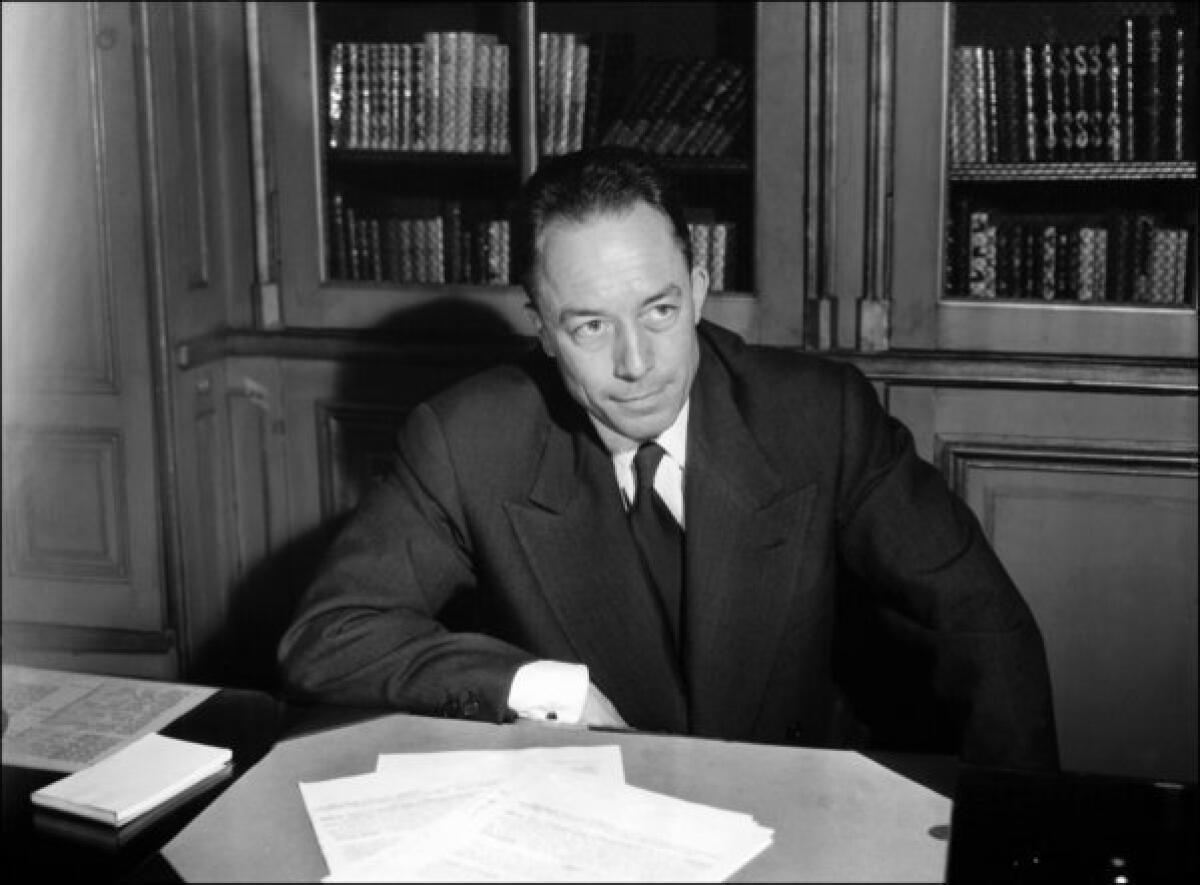The Stranger, the very first book published by the French-Algerian writer Albert Camus. It is the epitome of one the most important questions of life, “Is there any meaning to life?” Through Camus’s anti-hero Meursault (the Stranger), he shows us that the answer is no.
The Story centres around a young commercial employee, Meursault, who has just received a telegram informing him of his mothers death. Through the first-person writing style of Camus, we come to understand that Meursault is fairly indifferent to the news. He simply just doesn’t know what to make of it, which is quite understandable. Through him we also see how absurd the whole ceremony is, for his mothers elderly friends do not weep, yet decide that it is necessary for them to be there. The doorkeeper even offers him some cafe au lait, which gives the whole feeling that his mothers death is meaningless.
When Meursault returns home he does not waste his time on tears, but on experiencing while he can. Through the writing we can see how Meursault lives for the present only, and does not give his time to memories of the past or on anxious anticipation for the future. He spends his time with what gives him delight, which is for now Marie. He only sees her on the weekend, so he will not give up his time with her just because his mother happened to have been buried the previous day. Why should he weep? Meursault himself even states that, “Really, nothing in my life had changed.”
Through random circumstances throughout the novella Meursault finds himself being charged with the death of an Arab man. He however, is calm and does not feel any guilt over the murder. The people taking his case see him thus as a “stranger”. Someone who has no soul since he does not care for what has happened in the past. Meursault though shows no feeling toward it, if he is found guilty then he shall accept that. This is because he knows that he has no control over what others think of him, thus he has no control over his own sentence.
In the end he accepts the absurd and realises that if he is to be sentenced to death, it does not matter. For isn’t he already sentenced to death the moment he is born, therefore it does not matter whether he dies now in his thirties or when he is old and grey in his seventies. So when asked by a chaplain if he believed in God, he said no. For he is content with what he has, and sees no reason to need help from a god. This is because he has “laid [his] heart open to the benign indifference of the universe” and realises “that [he’d] been happy, and that [he] was happy still.”
Albert Camus gave us, through Meursault, a way to accept the world we were born in. A world that is overall cruel and completely apathetic to us. Camus tells us to live for the present, and not to feel for the past or live in anxious anticipation of the future. The only way one can truly live in the present is to accept the absurd situation that we all find ourselves in. When we do that no one may take away your enjoyment of life, for you are completely content with your situation.















Roger Winder • Mar 6, 2024 at 8:19 pm
Awesome analysis of a complex story.